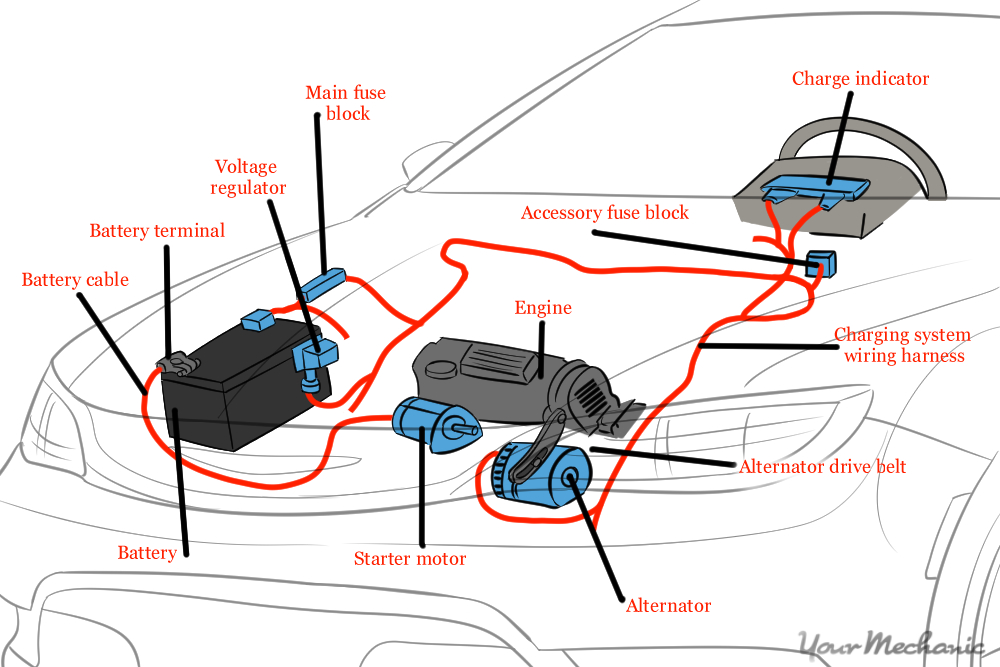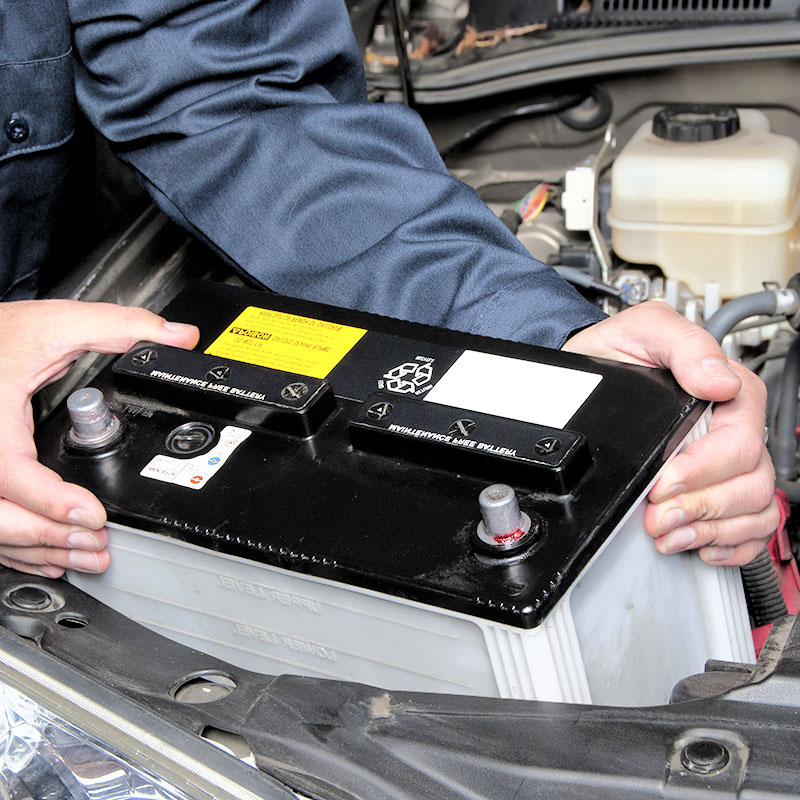Electrical System



Battery
Automobile batteries rely on a lead-acid chemical reaction to store and then release the energy needed to power things (like your car's starter) to get the engine running. This type of battery provides short bursts of energy in order to power your lights, accessories, and engine. Once the battery energizes the starter motor and gets the engine running, the power for the car is supplied by the alternator. If you have issues where your car won't start, or you have a problem with your chassis or suspension that are affecting your steering, or even issues with getting your car to pass the smog test like a faulty sensor and you're searching for a car mechanic nearby, consider using a mobile mechanic that can diagnose your electrical problems in the field and free you up from challenges of taking your car into a shop. In addition to electrical system fixes, we offer many auto repair services from brake jobs to complete engine repairs to keep you on the road
Alternator
Most people think that the battery is what powers a car, but that’s not the case. The battery only provides electricity for the starter motor to start the car and then other functions when the car is not running. When the car is running, the alternator generates the energy necessary to feed the electrical system. It also recharges the battery. The alternator works when the engine spins a pulleys which turns the pulley on the alternator. The alternator is really just a generator.
The output of an alternator is direct current (DC). When the alternator pulley is rotated, alternating current (AC) passes through a magnetic field and an electrical current is generated. This is then converted to DC by a rectifier.

Fuse Box
The main job of the fuse is to protect the wiring. Fuses should be sized and located to protect the wire they are connected to. If a device like your car radio suddenly draws enough current to blow the fuse, the radio is probably already toast. The fuse is there to protect the wire, which would be much harder to replace than the radio.
Most cars have two fuse panels. The one in the engine compartment holds the fuses for devices like the cooling fans, the electric fuel pump, heater fan or the engine control unit -- all of which are located in the engine compartment. Another fuse panel, usually located in the dashboard near the driver's knees, holds fuses for the devices and switches located in the passenger compartment.
So whether you have an electrical system problem or something wrong with your drive train, or even just an oil change, give Mobile Mechanic Garden Grove a call.
